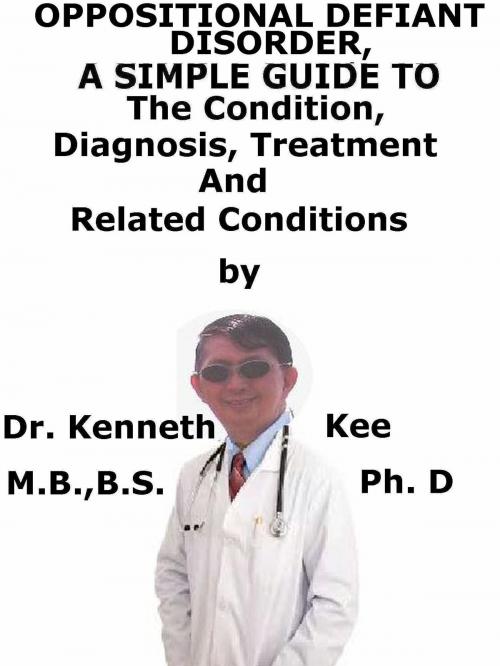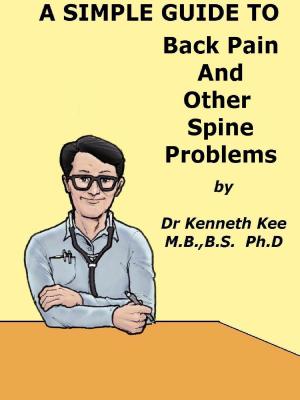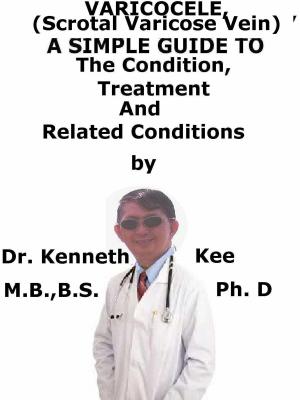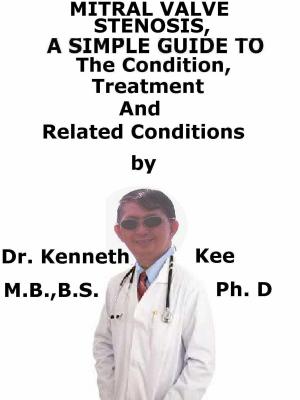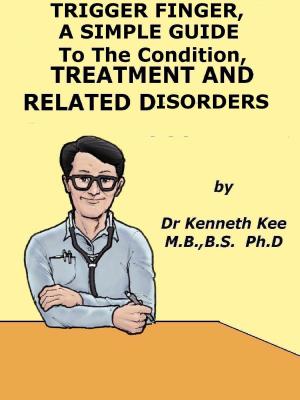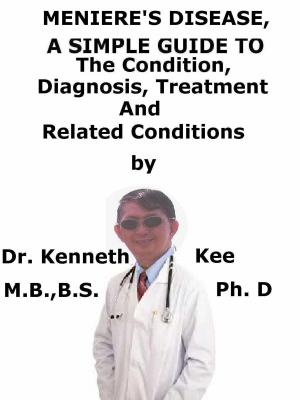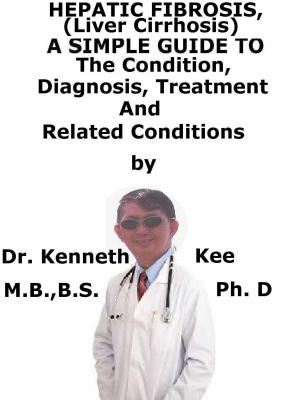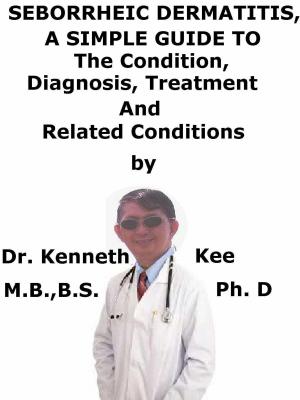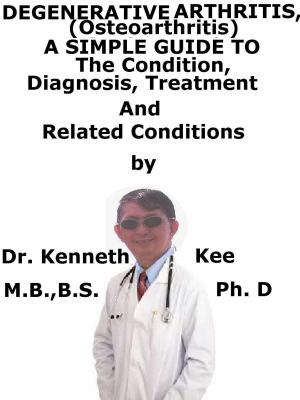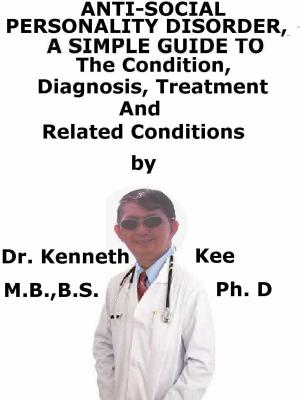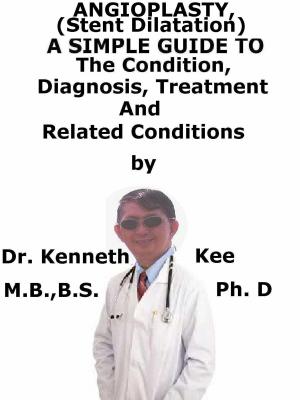Oppositional Defiant Disorder, A Simple Guide To The Condition, Diagnosis, Treatment And Related Conditions
Nonfiction, Health & Well Being, Psychology, Pathological Psychology, Medical, Specialties, Psychiatry| Author: | Kenneth Kee | ISBN: | 9781370836024 |
| Publisher: | Kenneth Kee | Publication: | January 9, 2017 |
| Imprint: | Smashwords Edition | Language: | English |
| Author: | Kenneth Kee |
| ISBN: | 9781370836024 |
| Publisher: | Kenneth Kee |
| Publication: | January 9, 2017 |
| Imprint: | Smashwords Edition |
| Language: | English |
Oppositional defiant disorder (ODD) is a medical disorder defined as a persistent pattern of negativistic, defiant, disobedient and hostile behavior toward influential figures that continues for at least 6 months and is not due to a mood or psychotic disorder.
Oppositional defiant disorder is a pattern of disobedient, hostile, and defiant behavior toward authority figures.
Possible risk factors for ODD are:
1. Temperament: a child who has a temperament that has problem controlling emotions, such as being highly emotionally reactive to circumstances or having difficulty accepting frustration
2. Parenting issues: child who has abuse or neglect, harsh or inconsistent discipline, or a lack of parental control
3. Other family issues: a child who lives with parent or family conflict or has a parent with a mental health or substance use disorder
Causative factors may be due to:
1. Genetics: a child's normal character or temperament and possibly neurobiological distinguishing in the way nerves and the brain function
2. Environment: disorders with parenting that may have a lack of supervision, inconsistent or harsh discipline, or abuse or neglect
DSM-5 criteria for diagnosis of ODD are both emotional and behavioral symptoms.
1. Angry and irritable mood:
a. Often losing temper
b. Often sensitive or easily annoyed by others
c. Often irate and resentful
2. Argumentative and defiant behavior:
a. Often disagrees with adults or people in authority
b. Often aggressively defies or refuses to comply with adults' requests or rules
c. Often intentionally annoys people
d. Often censures others for his or her mistakes or misbehavior
3. Vindictiveness:
a. Often spiteful or vindictive
b. At least twice in the past six months
ODD can differ in severity:
1. Mild. Symptoms happen only in one setting, such as only at home, school, work or with peers.
2. Moderate. Some symptoms happen in at least two settings.
3. Severe. Some symptoms happen in three or more settings.
For some children, symptoms may first be observed only at home, but with time widen to other settings, such as school and with friends.
Treating oppositional defiant disorder normally requires several forms of psychotherapy and training for the child as well as for parents.
Treatment often persists several months or longer.
Medicines alone normally are not used for ODD unless another disorder co-occurs.
If the child has concurrent disorders, principally ADHD, medicines may help considerably improve symptoms.
The foundations of treatment for ODD normally are:
1. Parent training.
2. Parent-child interaction therapy (PCIT).
3. Individual and family therapy.
4. Cognitive disorder-solving training.
5. Social skills training
As part of parent training, the parent may study how to control the child's behavior by:
1. Giving clear instructions and following through with suitable results when needed
2. Identifying and praising the child's good behaviors and positive features to produce desired behaviors
Learning more efficacious parenting skills is important for the child to improve.
When parents are not able or not willing to alter, because of their own emotional or other issues, treatment may not be possible.
TABLE OF CONTENT
Introduction
Chapter 1 Oppositional Defiant Disorder
Chapter 2 Causes
Chapter 3 Symptoms
Chapter 4 Diagnosis
Chapter 5 Treatment
Chapter 6 Prognosis
Chapter 7 ADHD
Chapter 8 Learning Difficulty
Epilogue
Any parent who has teenagers will recall how rebellious and defiant they are at that age group.
A child with Oppositional defiant disorder (ODD) is very different in behavior.
They are angry and defiant like all teenagers, but also argumentative, irritable at the tiniest provocation and worse still very vindictive and spiteful to friends, teachers, parents and any one in authority.
Oppositional defiant disorder (ODD) is a medical disorder defined as a persistent pattern of negativistic, defiant, disobedient and hostile behavior toward influential figures that continues for at least 6 months and is not due to a mood or psychotic disorder.
Oppositional defiant disorder is a pattern of disobedient, hostile, and defiant behavior toward authority figures.
Possible risk factors for ODD are:
1. Temperament: a child who has a temperament that has problem controlling emotions, such as being highly emotionally reactive to circumstances or having difficulty accepting frustration
2. Parenting issues: child who has abuse or neglect, harsh or inconsistent discipline, or a lack of parental control
3. Other family issues: a child who lives with parent or family conflict or has a parent with a mental health or substance use disorder
Causative factors may be due to:
1. Genetics: a child's normal character or temperament and possibly neurobiological distinguishing in the way nerves and the brain function
2. Environment: disorders with parenting that may have a lack of supervision, inconsistent or harsh discipline, or abuse or neglect
DSM-5 criteria for diagnosis of ODD are both emotional and behavioral symptoms.
1. Angry and irritable mood:
a. Often losing temper
b. Often sensitive or easily annoyed by others
c. Often irate and resentful
2. Argumentative and defiant behavior:
a. Often disagrees with adults or people in authority
b. Often aggressively defies or refuses to comply with adults' requests or rules
c. Often intentionally annoys people
d. Often censures others for his or her mistakes or misbehavior
3. Vindictiveness:
a. Often spiteful or vindictive
b. At least twice in the past six months
ODD can differ in severity:
1. Mild. Symptoms happen only in one setting, such as only at home, school, work or with peers.
2. Moderate. Some symptoms happen in at least two settings.
3. Severe. Some symptoms happen in three or more settings.
For some children, symptoms may first be observed only at home, but with time widen to other settings, such as school and with friends.
Treating oppositional defiant disorder normally requires several forms of psychotherapy and training for the child as well as for parents.
Treatment often persists several months or longer.
Medicines alone normally are not used for ODD unless another disorder co-occurs.
If the child has concurrent disorders, principally ADHD, medicines may help considerably improve symptoms.
The foundations of treatment for ODD normally are:
1. Parent training.
2. Parent-child interaction therapy (PCIT).
3. Individual and family therapy.
4. Cognitive disorder-solving training.
5. Social skills training
As part of parent training, the parent may study how to control the child's behavior by:
1. Giving clear instructions and following through with suitable results when needed
2. Identifying and praising the child's good behaviors and positive features to produce desired behaviors
Learning more efficacious parenting skills is important for the child to improve.
When parents are not able or not willing to alter, because of their own emotional or other issues, treatment may not be possible.
TABLE OF CONTENT
Introduction
Chapter 1 Oppositional Defiant Disorder
Chapter 2 Causes
Chapter 3 Symptoms
Chapter 4 Diagnosis
Chapter 5 Treatment
Chapter 6 Prognosis
Chapter 7 ADHD
Chapter 8 Learning Difficulty
Epilogue
Any parent who has teenagers will recall how rebellious and defiant they are at that age group.
A child with Oppositional defiant disorder (ODD) is very different in behavior.
They are angry and defiant like all teenagers, but also argumentative, irritable at the tiniest provocation and worse still very vindictive and spiteful to friends, teachers, parents and any one in authority.
